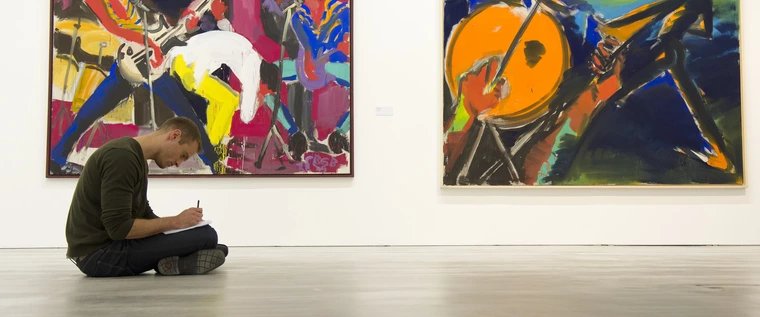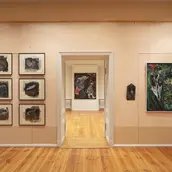
In his exhibition "Integration Miracle," German-Vietnamese artist Minh Duc Pham explores the history of labor migration to the GDR – particularly the experiences of Vietnamese contract workers, including his parents. These people came to the GDR under strict contractual conditions, worked in state-owned enterprises, and were under official control.
Ceramic objects in wooden boxes reminiscent of rose thorns, as well as flags with floral patterns and Vietnamese lettering, characterize the installation. A plastic sculpture reminiscent of tools for removing thorns takes up the rose motif – a symbol of the "model migrants" who were supposed to be hardworking and inconspicuous, while their reality was characterized by exploitation and discrimination.
Pham critically questions the narrative of the "integration miracle":
- Who really benefited from this migration?
- And why has a historical analysis remained elusive to this day?
Minh Duc Pham, born in 1991 in Bad Schlema (Saxony), studied at the Karlsruhe Academy of Art and Design and the Berlin University of the Arts. His works have been exhibited internationally, including at the Haus der Kulturen der Welt (Berlin) and the Museum der bildenden Künste (Leipzig). In 2024, he was nominated for the Haus am Kleistpark Art Prize, where he explored forced abortions among Vietnamese contract workers. Pham lives and works in Berlin.
PROGRAM
Opening: Thursday, April 3, 7 p.m.
Introduction with Diana Thun, art historian and curator of the exhibition
Saturday, July 5, 6 p.m.
Artist talk and closing reception with Minh Duc Pham and Diana Thun



